
Designing software to work with future versions of itself.
Backward Compatibility
Designing software to work with previous versions of itself.
DataCAD 12 is backward compatible with prior version drawing files, layers, and symbols. Due to the addition of new features and entity types, prior versions of DataCAD are not forward compatible with DataCAD 12. However, DataCAD 12 provides you with an option to save your drawing as a DataCAD 11 AEC file.
What exactly is a "smart" entity? A smart entity is a drawing element such as a wall, door, or window that contains routines and parameters that define how it behaves and interacts with other smart entities. When you draw two walls in a prior version of DataCAD, they don't know anything about each other until you explicitly tell the program to clean them together. In DataCAD 12, walls of the same type automatically clean to each other without you having to perform additional cleanup routines.
The same automation applies to doors and windows as well. When you add a door or window to a wall, the wall automatically cuts itself to accommodate the opening. Further, when you move, copy, or delete a door or window, the wall automatically heals itself. These "smarts" eliminate most of the cleanup steps you had to perform in prior versions.
A smart entity also knows what it is supposed to look like when viewed in plan or perspective. In plan, a door looks just like the 2D doors you are familiar with. However, when you switch to a 3D view, the door is automatically modeled complete with a jamb, casing, and trim. When you display your model in the object viewer, it is complete with rendered materials.
Of course, we really can't predict all of your intentions or accommodate every potential condition. So when necessary, you can still draft with plain ol' lines and arcs. You can also convert smart entities to simple entities. Since DataCAD's standard entities co-exist with smart entities, you can utilize both methods.
What can I do with smart entities that I can't do with traditional entities?
Smart entities allow you to make changes more easily.
When you change the width of a wall, all of its intersections update automatically.
You can change a door from double to bi-fold without having to remove it first then redraw it.
You can copy a window from one wall to another.
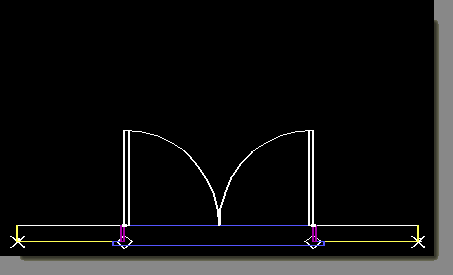
Smart Wall and Door - Plan View
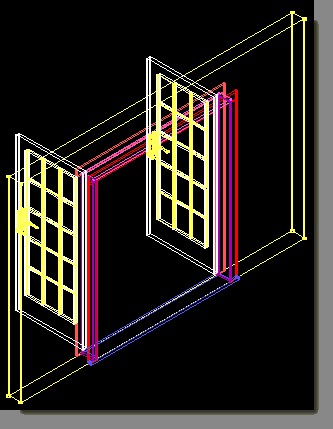
Smart Wall and Door - Axonometric View
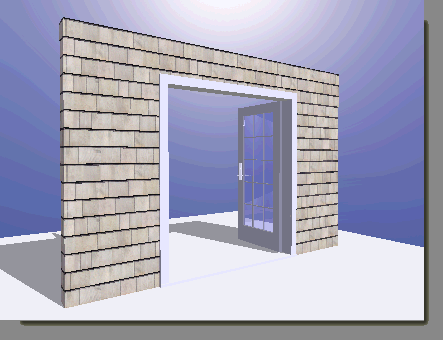
Smart Wall and Door - Rendered Perspective View
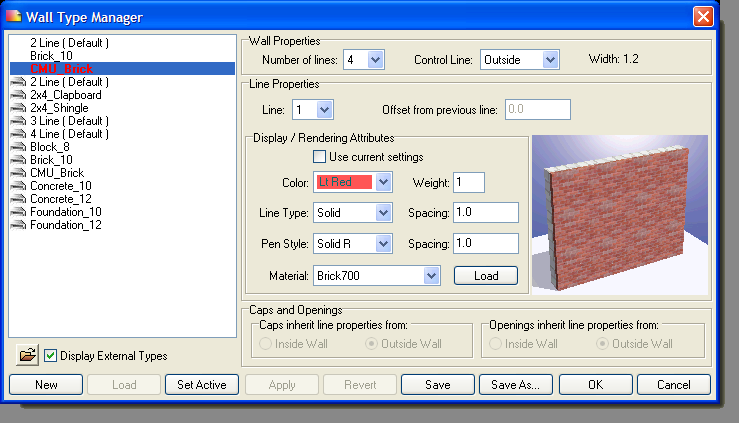
Wall Type Manager
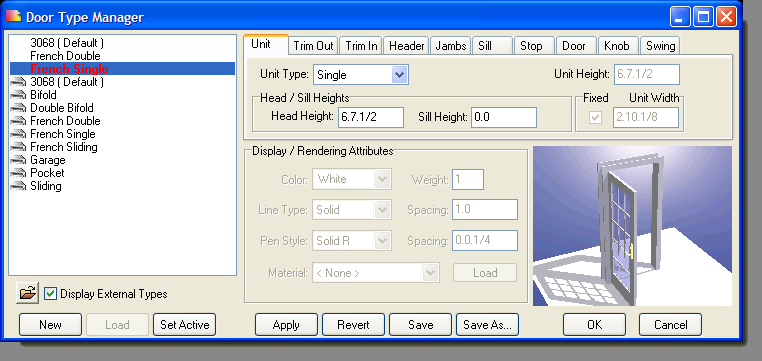
Door Type Manager
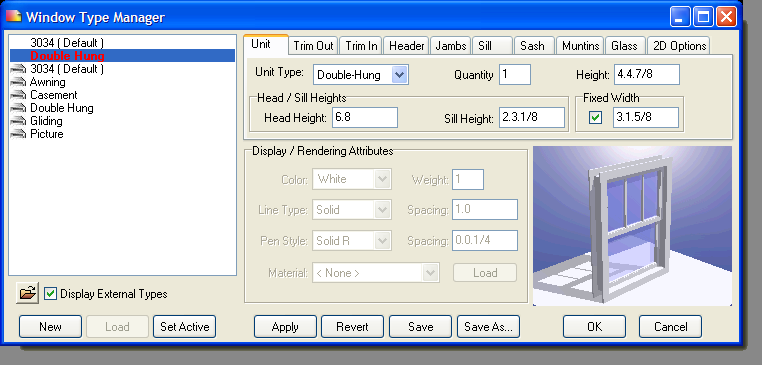
Window Type Manager
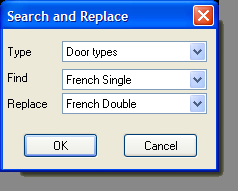
Search and Replace Dialog


Architect Menu "standard" versus "smart"
![]() Press [a] for "Architect" and toggle on Auto 3D
Press [a] for "Architect" and toggle on Auto 3D
![]() You can use the [=] (equals sign) to switch between drawing walls and lines
You can use the [=] (equals sign) to switch between drawing walls and lines
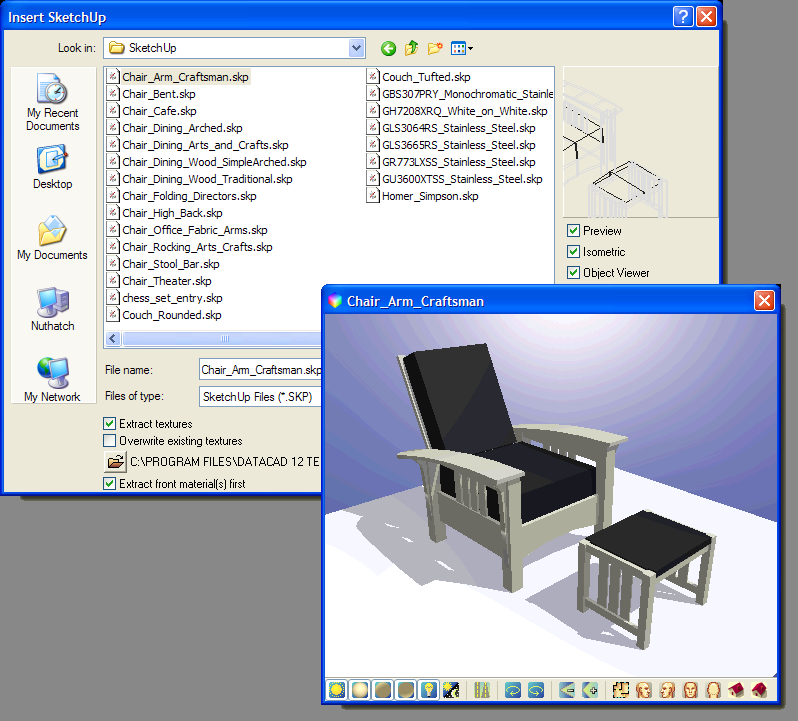
A new dynamic snap indicator displays available object snap locations in real-time.
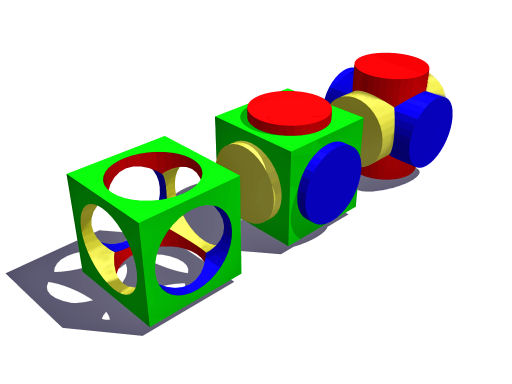
DataCAD 12 includes a new option to enable a double-precision display when you need to work on projects that cover a large real-world area.
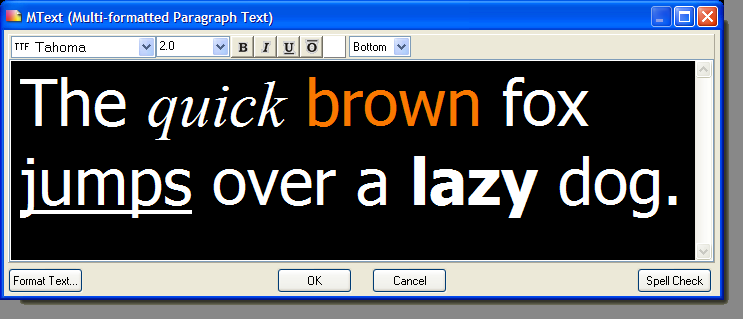
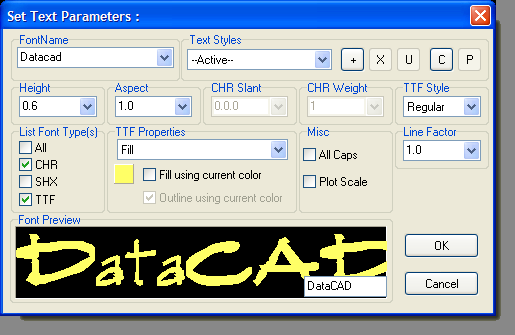
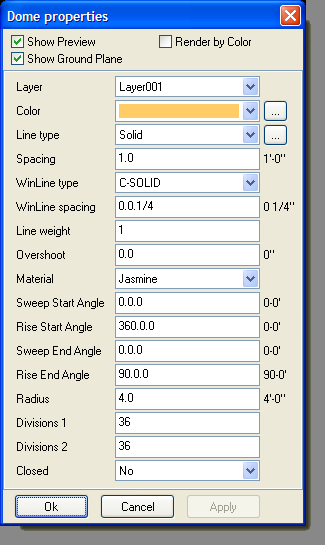
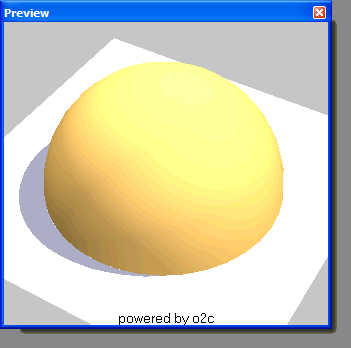
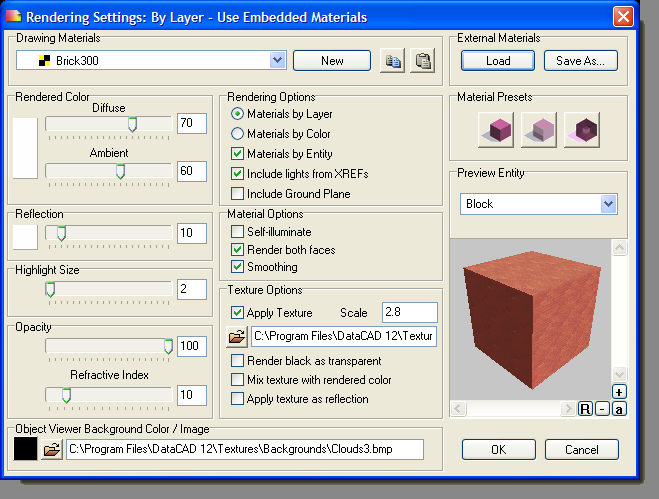
Symbols can now be clipped using rectangular or irregular shaped polyline boundaries.
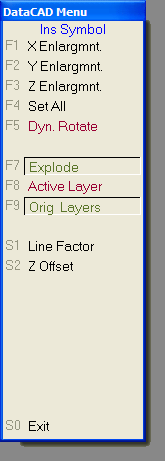
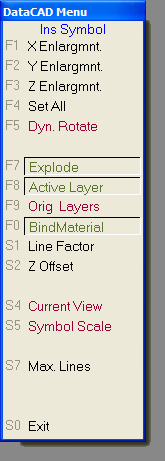
Insert Symbol DataCAD 11 versus DataCAD 12
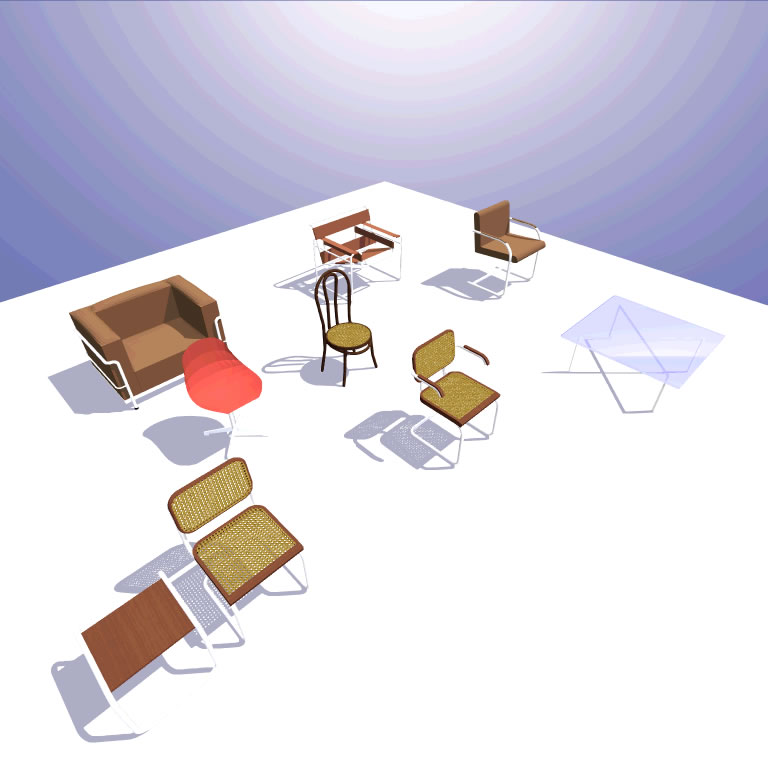
New Classic Furniture Symbols
DataCAD 12 includes more than 200 new seamless textures and dozens of background photos to add realism to your renderings.
|
New Seamless High-resolution Textures |
DataCAD 12 includes more than 50 new hatch patterns.
|
|
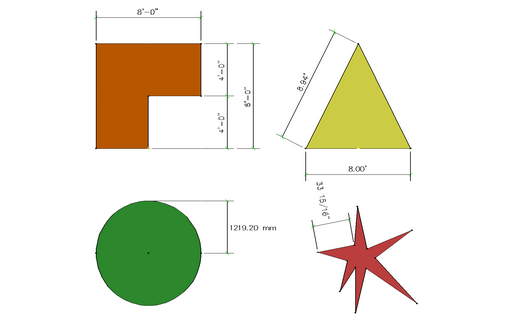
XREFs and Symbols can now be clipped using irregular
shaped polyline boundaries.
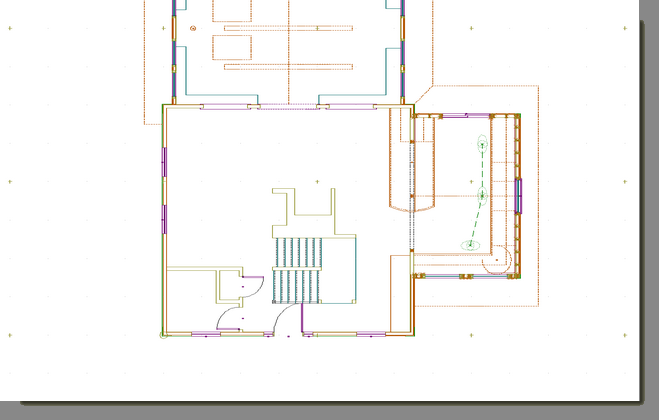
Before / After Clip
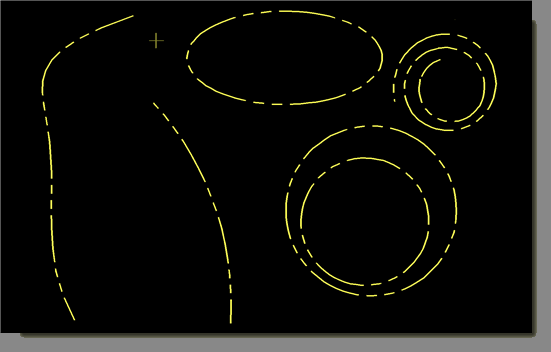

Notate Toolbar

Types Toolbar
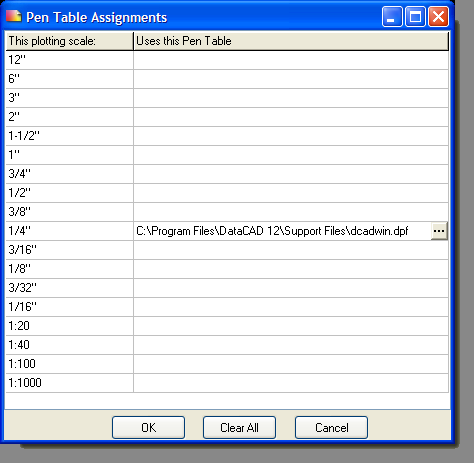
Scale to Pen Table Dialog

Multi-scale Plotting Detail Pen Table Assignment Dialog
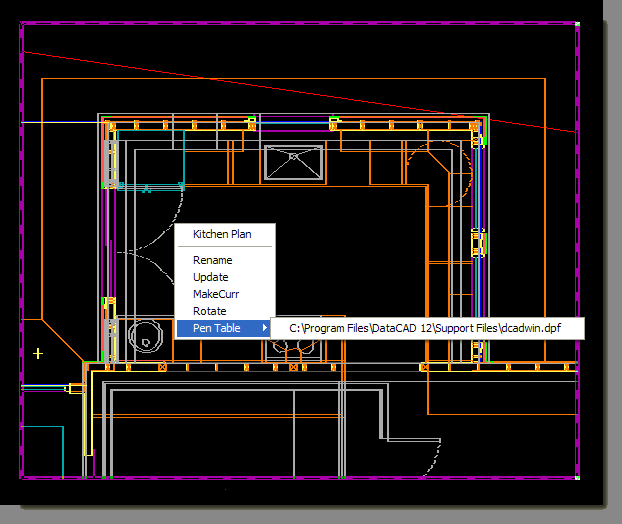
MSP Detail Context Menu
You can now save your multi-scale plotting layouts to DWG format so your consultants can access them directly using AutoCAD.
A new context menu provides quick access to MSP Detail operations.
MSP Details can be selected directly from the layout window versus only from the menu.
MSP Detail extents are highlighted when you hover your cursor over them. A tooltip displays the detail name.
MSP Detail Make Current now sets the current Plot Scale to what the detail was saved at.
MSP Detail names may now contain up to 80 characters.
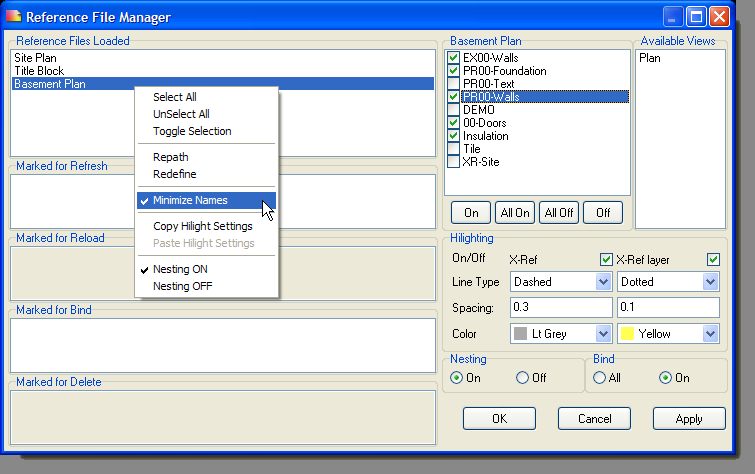
Reference File Manger Dialog
XREF Highlight settings can now be assigned on a per-XREF and/or XREF Layer basis. The Reference File Manager dialog has been updated to allow drag-n-drop between the Loaded, Refresh, Reload, Bind, and Delete lists. You can also assign custom names to XREFs. The Inherit Current Highlight Setting option for Nested XREFs is now remembered on a per drawing versus global basis.